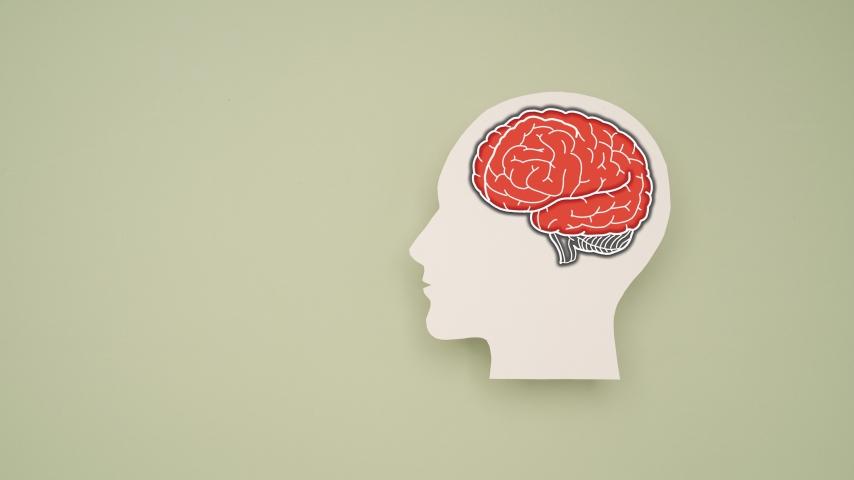15 Neurological Disorders Symptoms to Be Aware Of

Neurological disorders and diseases affect the neurological system, including the brain, spinal cord, and nerves. These problems can be caused by a variety of factors, including genetics, infections, tragic events, or autoimmune reactions. They occur in a variety of forms, resulting in neurological problems that limit a person's ability to think, move, communicate, or conduct everyday tasks.
One common type of neurological disorder is epilepsy, which is characterized by recurrent seizures caused by abnormal electrical activity in the brain. Another prevalent condition is multiple sclerosis, where the immune system mistakenly attacks the protective covering of nerve fibers, leading to communication problems between the brain and the rest of the body.
Parkinson's disease is another well-known neurological disorder, that primarily affects movement. It occurs due to a loss of dopamine-producing cells in the brain, resulting in tremors, stiffness, and impaired coordination.
Alzheimer's disease, on the other hand, is a progressive neurological disorder that affects memory, thinking, and behavior. It is characterized by the accumulation of abnormal proteins in the brain, leading to the deterioration of cognitive function.
Other neurological problems include migraines, stroke, neuropathy, and neurodegenerative disorders like Huntington's disease and amyotrophic lateral sclerosis (ALS). These illnesses can have a substantial impact on people and their quality of life, demanding trained professionals' medical treatment and assistance.
Neurological Disorders Symptoms
The early detection and prompt intervention of neurological disorders depend on the ability to recognize their symptoms. These conditions affect the nervous system in a wide variety of ways, and they frequently have recognizable neurological symptoms.
Being aware of the symptoms of neurological disorders symptoms enables people to seek immediate medical care, which results in early intervention and better outcomes. A multidisciplinary approach is frequently used in the diagnosis and treatment of neurological problems, with neurologists, neurosurgeons, and other medical specialists cooperating to manage the condition.
Depending on the specific disorder, there are various treatment options available, such as medication, physical therapy, occupational therapy, or surgical interventions. If you or someone you know has shown any of these neurological problems, it's crucial to speak with a healthcare provider for a thorough assessment and recommendations.
Signs of Neurological Disorders
The advancement of effective treatments relies on continuous research, early detection, and access to appropriate care. These crucial aspects can be furthered by raising public awareness about neurological symptoms and disorders. By understanding these disorders and their impact, we can strive for improved management and support for individuals facing neurological challenges.
Neurological disorders are a group of ailments that affect the neurological system and can cause a variety of neurological symptoms. Common neuro problem symptoms can cause a variety of symptoms that impact cognition, mobility, sensory perception, and other essential functions.
1. Headache
Persistent headaches with or without parallel symptoms such as dizziness, nausea, or sensitivity to light and sound: Headaches that occur frequently and last a long time, possibly accompanied by other feelings such as feeling lightheaded, nausea, or vomiting, and being more sensitive to bright lights or loud noises.
2. Muscle weakness or paralysis
Muscle weakness or paralysis, which can be localized or affect multiple areas of the body: Reduced strength or complete loss of movement in specific muscles or larger regions of the body, potentially leading to difficulties in performing regular tasks or limitations in mobility.
3. Unusual sensation
Changes in feeling in the limbs or other body parts, such as numbness, tingling, or a "pins and needles" sensation. Feelings or sensations in the body that are altered, such as a loss of sensitivity, tingling or prickling sensations.
4. Motor Skill Imbalance
Coordination difficulties and balance problems, leading to unsteady movements or impaired fine motor skills. Challenges in controlling and coordinating movements, resulting in unsteadiness while walking or performing precise tasks that require fine motor skills, like writing or buttoning a shirt.
5. Memory loss problems
Memory issues like trouble concentrating, confusion, or mood and personality changes are examples of cognitive and behavioral alterations. Changes in cognitive function and behavior, such as memory issues, difficulty focusing or concentrating, confusion or disorientation, as well as noticeable changes in mood, personality, or well-being on an emotional level.
6. Seizures
Seizures, which are caused by abnormal electrical activity in the brain which can lead to spasms or loss of consciousness. They involve abnormal electrical activity in the brain that can trigger a range of symptoms, including involuntary muscular spasms or convulsions, changes in awareness or consciousness, and, at times, loss of consciousness.
7. Vision problems
Vision problems, such as blurred vision, double vision, or loss of vision: Impairments in visual perception, ranging from blurred or distorted vision, seeing double images, or even experiencing partial or complete loss of vision.
8. Speech difficulties
Speech difficulties, including slurred speech or difficulty finding the right words: Challenges in articulating speech clearly or fluently, resulting in slurred or mumbled speech, struggling to find appropriate words, or having difficulty forming coherent sentences.
9. Tremors
Tremors or uncontrollable movements of the limbs, face, or other body parts. Unconsciously shaking or rhythmic movements can affect the hands, arms, legs, face, or other body parts, possibly interfering with doing demanding jobs that need controlled movements.
10. Fatigue and weakness
Fatigue and weakness, which can significantly impact daily activities and overall energy levels. Persistent feelings of tiredness, weakness, or lack of energy, often lead to reduced physical stamina, diminished ability to perform daily tasks, and overall decreased productivity and vitality.
11. Difficulty in coordination and balance
If you are having problems walking or maintaining proper posture. Challenges in maintaining a stable and coordinated body posture while standing, walking, or engaging in activities that require balance, potentially resulting in stumbling, unsteady movements, or falls.
12. Increased sensitivity
Sensitivity to stimuli, such as heightened sensitivity to touch, sound, or light. Exaggerated reactions to sensory stimuli, where normal sensations can become overwhelming, leading to discomfort, pain, or irritability in response to touch, sound, light, or other environmental stimuli.
13. Altered sleep patterns
Sleep disturbances, including insomnia, excessive sleepiness, or abnormal sleep patterns. Disruptions in normal sleep patterns, which can manifest as difficulty falling asleep (insomnia), excessive sleepiness or drowsiness during the day, fragmented or restless sleep, or irregular sleep-wake cycles.
14. Difficulty swallowing
Challenges in swallowing food or liquids, potentially leading to discomfort, choking, or an increased risk of aspiration, as well as difficulties with digestion and gastrointestinal function.
15. Changes in bowel or bladder control
Disturbances in the normal functioning of the bowels or bladder, such as experiencing sudden or frequent urges to urinate or defecate, difficulty controlling the release of urine or stool, or a potential loss of control altogether, can significantly impact daily life and personal hygiene.
It should be noted that having certain signs and symptoms does not always imply the presence of a specific neurological condition. However, if you have any persistent or alarming combination of these symptoms, you should seek the advice of a healthcare expert. A proper diagnosis by a medical specialist is essential in order to discover the underlying cause and the best course of therapy or management plan for your unique circumstance.
See Also - Why is there Pain in back of my head?
Conclusion
Neurological illnesses and their symptoms can have a big influence on individuals' daily lives. From an array of symptoms, such as cognitive, sensory, and motor deficits, to the need for early discovery and specialist treatment, it is evident that these illnesses must be addressed. Improve your neurological health with Gleneagles Hospital, Mumbai. Overcome neurological issues with our expert team and top-notch treatment. Explore the potential of precise diagnosis, advanced therapies, and a better tomorrow. Take charge of your neurological health today and begin an amazing journey by getting treated by the best neurosurgeons in Mumbai. Regain control of your life and start your transformative journey by seeking the right treatment.











